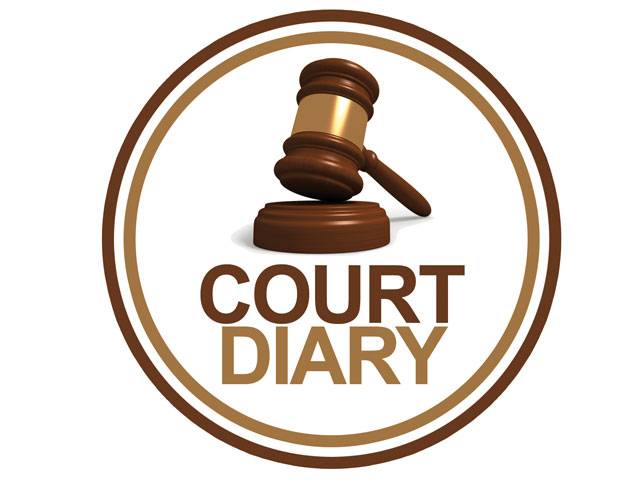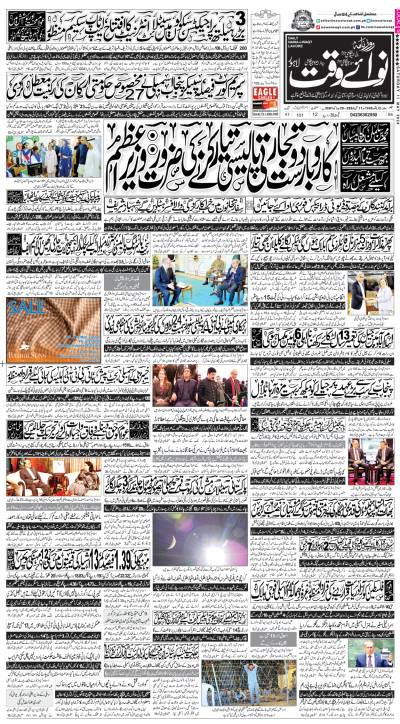LAHORE - The whole nation in general and the legal fraternity in particular bear huge loss as 70 people out of which 60 lawyers were martyred last week in a suicide attack in Quetta. Nature of the attack showed that the legal fraternity was the particular target which left judiciary and the legal fraternity both in somber and sadness.
All the lawyers’ bodies, including Pakistan Bar Council, provincial bar councils and bar associations, announced three-day strike and seven day mourning across the country to condemn the terrorist attack.
They boycotted courts, took out rallies and put their demands before the government authorities to provide protection to them and to every citizen. The lawyers held meetings and addressed press conferences to show unity.
During these days of shock and sadness, they proved by their peaceful protests that they are true lovers of the state and will not allow anyone to destroy their beloved land.
Their strike continued for three days with a sense of mourning prevailing in the bar rooms and courts. However, they (lawyers) never thought to become hurdle in the way of the courts’ proceedings. It was unlike situation because the lawyers mostly react differently. The Daska incident is not so old when the lawyers blocked the roads and jammed the system on the first day of their strike in Lahore and other cities of Punjab.
But after Quetta blast, they reacted wisely and considered the gravity of the situation. They did not take law into their own hands.
Speaking at a media briefing, SCBA President Syed Ali Zafar called upon the legal community to gather and protest in front of the parliament. He also demanded from interior minister and police chiefs of all the provinces to hold meetings with the legal community to ensure a foolproof strategy for implementation of the security measures in future in all the courts.
He was of the view that the general public also deserved the same kind of protection as the VIPs of the country.
The bar associations have called for constitution of a committee comprising apex court judges to probe into the suicide blast at Civil Hospital Quetta. Many flaws were observed in the security arrangements for the courts as the terrorists can enter easily into the premises of the courts and may target to any person either he/she is a judge sitting in a courtroom, a lawyer in the bar room or a common litigant going there for justice.
Such sensitivity demands that proper planning and surveillance is required for the safety of the public places. The lawyers, many a times, demanded security and the judges held meetings but the authorities did not take their demands seriously.
The courts, however, took up the cases of urgent nature during the week. LHC Justice Shahid Bilal Hassan directed the Punjab government to ensure the sanctity of the national flag and judge observed that it should not be printed with other colours than green and white with crescent on it. The judge ordered that the government lay down the policy to ensure the sanctity of the flag. He also ordered to the interior secretary to ensure compliance of this order and adjourned further hearing for three months.
During last week, the LHC stayed recovery of income tax on agriculture products and sought reply from the Punjab government. The court deferred proceedings for two weeks.
In another case, the LHC sought reply from DIG Operations in a petition filed by residents of Riwaz Garden against alleged kidnapping of children in the area. During the hearing, the petitioners said that police was not hearing their grievances. They held the police instead of taking action against these criminals were protecting the criminals who were demanding extortion money.
The court would resume hearing on Aug 17.
Besides that, two important petitions were filed in the LHC during the week; one against newly passed Cyber Crime Act, 2016, and the other seeking directions for the federal government to take up the issue of held Kashmir at United Nations Security Council.
First petition was filed by Pakistan Awami Tehreek while the second was moved by Jamatud Dawa Chief Hafiz Saeed.
At lower courts, an anti-terrorism court reopened trial of suspects allegedly involved in kidnapping of slain Punjab governor Salman Taseer’s son Shahbaz Taseer, now recovered.
Shahbaz Taseer was kidnapped from Gulberg area in Aug 2011 and security forced recovered him from an area near Kuchlak (Baluchistan) in March 2016. The court had in May 2014 suspended the proceedings of the trial after granting bail to four suspects - Usman, Abdul Rehman, Farhad and Moazzam. The suspect, Usman, filed an application before the court requesting it to resume the trial proceedings as the abducted son of the slain governor had been recovered.
The court partially accepted the application and reopened the trial of the suspects involved in the case. The court fixed Aug 22 to resume the trial.






